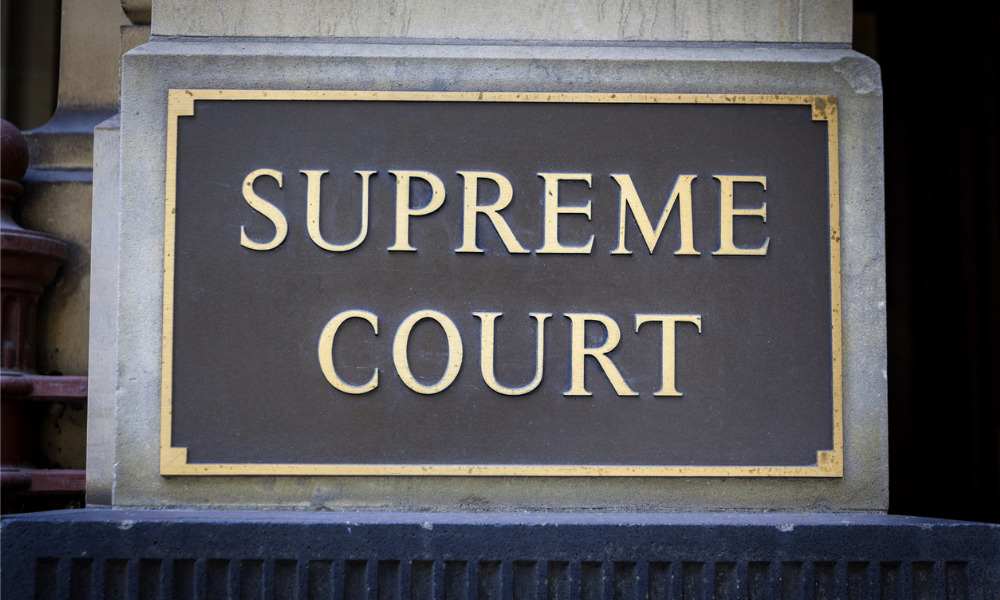
Jonathan Bowers-Taylor participated in a court proceeding despite failing to renew his practising certificate

A lawyer is facing contempt charges before the Victoria Supreme Court after deliberately concealing his participation in a court proceeding when he failed to renew his practising certificate.
The charges include failure to provide access to software and hindering the removal of electronic records by not allowing the firm’s manager to secure and remove a computer server.
The Victorian Legal Services Board appointed Damian Neylon as manager of the incorporated legal practice JBT Lawyers after the firm's principal, Jonathan Bowers-Taylor, failed to renew his practising certificate for the year.
Neylon encountered obstacles in obtaining access to the practice's records. As a result, the board initiated legal proceedings seeking various orders under section 447 of the Legal Profession Uniform Law. The court issued a series of orders, restraining Bowers-Taylor from hindering Neylon's managerial functions and compelling him to provide access to the practice's software, client files, and trust account records by specific deadlines.
The court found Bowers-Taylor in contempt for breaching the orders.
The board sought further contempt charges against Bowers-Taylor, alleging that he conducted a Supreme Court proceeding without informing Neylon. The court granted interim injunctions, restraining Bowers-Taylor from communicating in the name of JBT Lawyers without Neylon's permission and engaging in legal practice in Victoria.
Bowers-Taylor argued that he still had a practising certificate by operation of r. 17(2) of the Legal Profession Uniform General Rules. However, the court pointed out that his argument was not responsive to the charge, which alleged deliberate breaches of court orders. The operation of those orders did not depend on whether Bowers-Taylor had a current practising certificate. In their terms, they bound Bowers-Taylor not to obstruct or hinder Neylon in exercising his functions as manager of JBT Lawyers and to provide Neylon with specific information about the business of JBT Lawyers, including all client files.
Furthermore, the court was satisfied that Bowers-Taylor did not have a practising certificate, and his argument based on r. 17(2) of the Uniform Rules was untenable.
Bowers-Taylor also argued that he had to continue to act in the Supreme Court proceeding due to urgency associated with the impending trial date and because Neylon was not qualified to conduct the litigation and would simply have adjourned the trial. The court rejected his argument, finding no evidence to support his assertions.
The court was ultimately satisfied that Bowers-Taylor deliberately failed or refused to disclose to Neylon that JBT Lawyers was on the record as the legal representative for the appellant in the Supreme Court proceeding and to provide Neylon with all physical and electronic records and communications relating to the proceeding. The court was also satisfied that Bowers-Taylor's omissions were deliberate because he knew the court orders restraining him. As an Australian lawyer and an officer of the court, he understood their meaning and legal effect.
The court said that Bowers-Taylor's failure to disclose the existence of the proceeding to Neylon prevented, obstructed or hindered him in exercising his powers as appointed manager of JBT Lawyers as he could not take over the conduct of a proceeding he did not know about. The court was also satisfied that Bowers-Taylor actively sought to conceal his conduct of the proceeding from Neylon.
The court concluded its decision by stating, "It is a serious matter for any lawyer to be found to have committed a contempt of court, and findings of contempt have now been made against Mr Bowers-Taylor by two judges of this Court."
The court will hold a penalty hearing concerning his contempt and whether the injunctions should be made permanent.